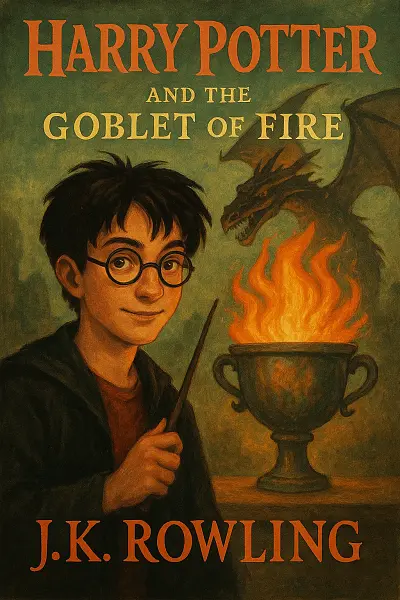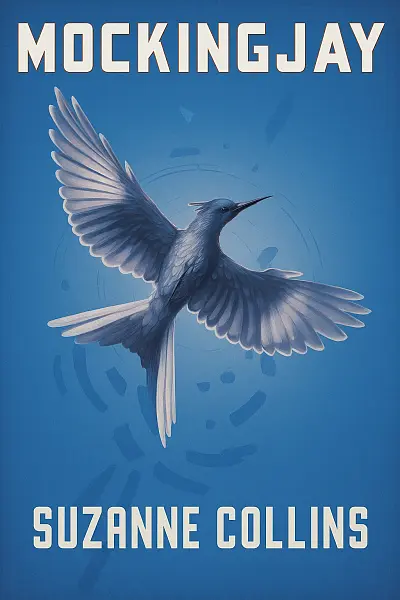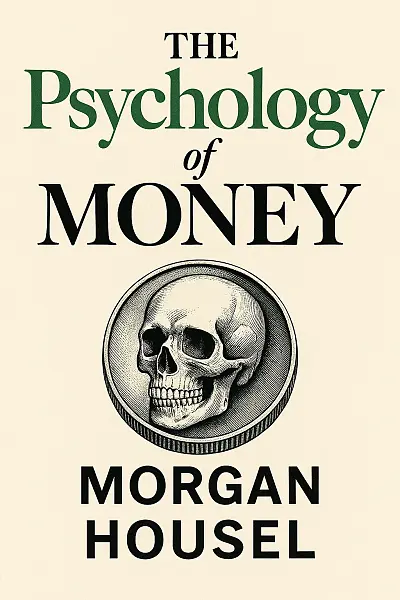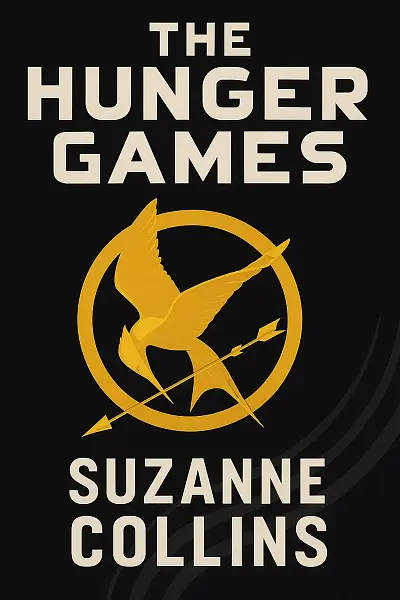
The Hunger Games
by: Suzanne Collins
Sixteen-year-old Katniss Everdeen survives on cunning in District 12, struggling to protect her family in the shadow of the oppressive Capitol. Life takes a gut-wrenching turn when her little sister is chosen for the infamous Hunger Games—a brutal, televised fight to the death. Katniss volunteers in her place, catapulted into a glitzy, cutthroat arena where only one can make it out alive.
Fueled by loyalty and raw determination, Katniss faces dire moral choices, questioning how far she's willing to go. As alliances blur and every move is on display, we're left hanging—will she choose survival...or her humanity?
"When hope dares to flicker in the darkest of games, it becomes a weapon no tyrant can silence."
Let's Break This Down
The Author's Voice
Atmosphere
Expect a tense, ever-present sense of danger that thrums through every page. The world of Panem is vividly grim, with a constant undercurrent of dread and desperation. Collins crafts an oppressive, claustrophobic feeling during the Games, where survival is never guaranteed, but she still manages to slip in sparks of hope and resilience. Every setting—from the bleak Seam to the glittering yet chilling Capitol—is painted with just enough detail to feel immersive but leaves space for your imagination to fill the gaps.
Prose Style
Direct, clear, and unpretentious. Collins writes in first-person, present-tense, putting you right in Katniss’s head. The sentences are brisk, often short and urgent, perfectly mirroring Katniss’s practical mindset. Don’t expect lyrical flourishes—the language is utilitarian and unfiltered, which keeps the pace swift but doesn’t always indulge in poetic depth. Dialogue feels real, characters’ voices come through strong, and emotions are raw and immediate. The style pulls you in and doesn’t let go, but it occasionally trades subtlety for momentum.
Pacing
Relentless and unyielding. The story wastes no time on slow build-ups; it plunges you straight into conflict and barely stops to catch its breath. Action sequences are sharp and pulse-pounding, while quieter moments are always laced with tension. If you’re into books that are hard to put down, this one’s got “just one more chapter” energy written all over it. Sometimes the breakneck speed means emotional beats can feel rushed, but it almost always keeps the adrenaline pumping.
Dialogue
Authentic and sparing, with every line serving a clear purpose. Characters rarely waste words; their conversations are shaped by the urgency of their circumstances. Humor and warmth peek through at the edges, helping you connect with the cast, but the dialogue stays mostly tight and emotionally charged, never overwrought.
Tone & Mood
Bleak but fierce. There’s a grit to every page, balanced by moments of poignancy and rebellion. The mood swings between hopelessness and defiance—you’ll feel the weight of the oppressive regime, but also catch glimpses of unexpected tenderness and courage. The tone is no-nonsense, much like Katniss herself, but it never loses sight of what’s at stake. Expect to be kept on the edge, never quite sure who (or what) is truly safe.
Imagery & World-Building
Collins conjures the world of Panem with bold brushstrokes rather than intricate detail. She focuses on vivid, memorable images—the burning dress, the deadly arena, the stark contrast between rich and poor. The world feels real and close enough to be disturbing, even if every detail isn’t painstakingly spelled out. It’s all about mood and impression, letting you fill in the blanks where it counts.
Overall Rhythm
Fast, intense, and emotionally immediate. There’s an urgency to every page that mirrors the life-or-death stakes Katniss faces, with emotions that hit hard and a narrative drive that makes it easy to binge. If you want a book that barrels forward and immerses you straight into its high-stakes world, this one’s a total page-turner, even if it means sometimes catching your breath on the run.
Key Moments
-
Katniss’s arrow slicing through the apple in the pig's mouth—defiance in a single shot
-
"May the odds be ever in your favor"—a chilling mantra after every reaping
-
Peeta’s camouflage artistry: survival meets unexpected tenderness
-
Rue’s haunting lullaby under the trees—grief and hope intertwined
-
Televised violence spun into spectacle—reality TV on a knife’s edge
-
The Capitol’s grotesque opulence vs. District hunger—social critique wrapped in adrenaline
-
Final berry standoff: love, rebellion, and deadly strategy in one electrifying moment
Plot Summary
The Hunger Games sweeps readers into the dystopian world of Panem, where Katniss Everdeen volunteers to take her sister Prim’s place in the annual Hunger Games—a brutal, televised fight to the death among 24 tributes. Katniss is joined by Peeta Mellark, her male counterpart from District 12, and the pair must navigate deadly challenges in the arena while projecting the image of star-crossed lovers to survive. As alliances form and tributes fall, Katniss and Peeta defy the Capitol’s rules with a double suicide bluff, forcing the government to allow them both to win. The story peaks with their return home and the uneasy knowledge that their rebellion against the Capitol has made them targets, setting up tension for the sequel. At its core, the plot is a wrenching survival story laced with political intrigue, tough choices, and real emotional stakes.
Character Analysis
Katniss Everdeen stands out as a fiercely independent, resourceful protagonist whose defining trait is her loyalty to loved ones—her growth is marked by her shift from pure survival for her family’s sake to understanding her potential as a symbol of resistance. Peeta Mellark is compassionate and strategic, his ability to manipulate public perception contrasting Katniss’s more direct approach, and his genuine affection for her grounds their alliance. Haymitch Abernathy, the damaged yet clever mentor, oscillates between cynicism and care, pushing Katniss and Peeta to outthink their enemies. By the novel’s end, Katniss emerges more politically aware but deeply conflicted, while Peeta is emotionally wounded yet steadfast, making their arcs both compelling and tragic.
Major Themes
Power and oppression dominate the narrative, with the Capitol’s control vividly illustrated in the Games’ orchestrated violence and spectacle—Katniss’s defiant spirit exemplifies the theme of resistance. Reality versus appearance is another core idea, seen in how tributes must perform for survival and how media manipulates truth; the “star-crossed lovers” trope becomes a literal game move. The story also tackles sacrifice and the moral cost of survival, especially through Katniss’s tough choices and her relationship with Rue, which humanizes the stakes and questions the ethics of the Games. Ultimately, The Hunger Games challenges readers to consider the boundaries of humanity in extreme conditions.
Literary Techniques & Style
Suzanne Collins opts for first-person, present-tense narration, immersing readers instantly in Katniss’s thoughts and emotions—this style amplifies tension and lends authenticity to her voice. Symbolism is rich: the mockingjay represents rebellion and hope, while fire embodies Katniss’s spirit (“the girl on fire”). Foreshadowing is smartly woven, from early warnings about the Capitol’s ruthlessness to subtle hints about alliances and betrayals. The writing is direct and gripping, favoring quick, sensory detail and emotional impact over flowery prose, making the world both immersive and immediate.
Historical/Cultural Context
Set in a future North America ravaged by war, famine, and environmental collapse, The Hunger Games echoes both classical mythology (notably the Theseus myth) and historical spectacles like the Roman gladiatorial games. Themes of authoritarian control, media manipulation, and socioeconomic inequality mirror real-world issues, offering a biting commentary on contemporary society’s relationship with entertainment, power, and inequality. The influence of reality TV and modern celebrity culture is clear, shaping both the format of the Games and the psychological stakes for tributes.
Critical Significance & Impact
The Hunger Games quickly became a cultural phenomenon, praised for its action, strong female lead, and unflinching social commentary—while sparking debate about violence in YA fiction. Its influence reverberates across young adult literature, inspiring a surge in dystopian novels and empowering a generation of readers and writers. More than a blockbuster, the book’s insights into media, power, and rebellion ensure its continued relevance in classroom discussions, book clubs, and beyond.
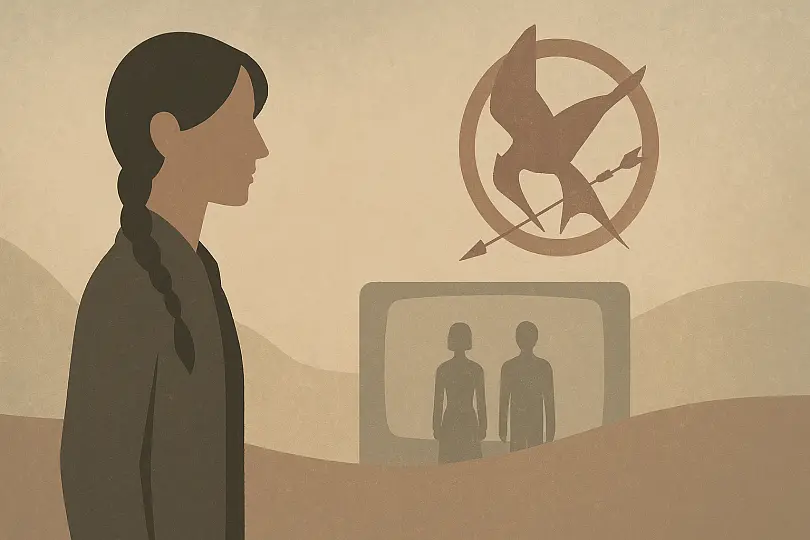
Survival demands sacrifice in a deadly game where rebellion ignites hope.
What Readers Are Saying
Right for You If
If you love fast-paced stories packed with action, survival, and a dash of rebellion, The Hunger Games should be right up your alley! It's perfect for:
- Fans of dystopian worlds – If you enjoyed books like Divergent or The Maze Runner, this is a must-read.
- Anyone who craves high stakes and edge-of-your-seat tension – Seriously, this is the kind of book that will keep you up way past your bedtime.
- Readers who appreciate strong, complex characters – Katniss is fierce and flawed, and if you like heroines who actually feel human, you’ll probably love following her journey.
- People who enjoy social commentary mixed with adventure – There’s a lot going on beneath the surface about power, society, and what it means to do the right thing.
But honestly, if you’re not into grim settings or don’t love violence and moral dilemmas as a big part of your reading experience, you might want to pass. It gets pretty intense and doesn’t shy away from tough topics. Also, if you’re looking for a slow-burn romance or poetic writing, this series is a bit more straightforward and action-oriented than that.
So, if you’re up for a wild ride with a seriously cool protagonist and aren’t afraid of a little darkness, definitely give this one a shot! If you’d rather have something light-hearted or fluffy, maybe save it for another time.
What You're Getting Into
*In a gritty, dystopian future, sixteen-year-old Katniss Everdeen lives in a society where the oppressive Capitol forces children from its twelve districts to compete in a televised fight for survival. When Katniss volunteers to take her sister's place, she’s thrust into a brutal arena where every choice could mean life or death. With fierce rivalries, unexpected alliances, and nonstop tension, The Hunger Games delivers an adrenaline-pumping blend of danger, courage, and defiance that'll have you turning pages late into the night!
Characters You'll Meet
-
Katniss Everdeen: Reluctant heroine and skilled archer who volunteers for the Games to save her sister. Her fierce independence and compassion make her the face of rebellion.
-
Peeta Mellark: The baker’s son and Katniss’s fellow tribute, renowned for his kindness and strategic mind. His loyalty and unyielding love for Katniss add emotional complexity to the story.
-
Gale Hawthorne: Katniss’s best friend and hunting partner, symbolizing her ties to home. His resourcefulness and growing political awareness highlight the cost of defiance.
-
Haymitch Abernathy: Gruff, often-drunk mentor to Katniss and Peeta, whose sharp tactical instincts and survival savvy are crucial to their chances. His jaded but caring nature provides unexpected support.
-
Primrose Everdeen: Katniss’s vulnerable younger sister, whose selection for the Games sparks Katniss’s courageous decision. Prim’s innocence and hope are central to Katniss’s motivations.
More Like This
If you found yourself riveted by the desperate quests and shifting alliances in Divergent by Veronica Roth, you'll instantly vibe with the high-stakes challenges and divided loyalties woven through The Hunger Games. Both novels build tension around survival in brutal societies, but while Divergent leans into identity and belonging, Collins takes the terror of spectacle and forces us to question just what we're cheering for.
Fans of Battle Royale by Koushun Takami will notice a dark, adrenaline-charged kinship: the core setup—youths trapped in a deadly contest—is eerily familiar, but The Hunger Games stands out with its sharp commentary on media manipulation and its memorable heroine who combines vulnerability with unbreakable resolve.
On the screen side, the pulse-pounding suspense and public spectacle of The Hunger Games often brings to mind the best episodes of Black Mirror, especially stories like "Fifteen Million Merits," where oppressive systems and viewer complicity become impossible to ignore. Much like Black Mirror, Collins masterfully fuses dystopian thrills with haunting social commentary, leaving you questioning not just the world on the page—but the one outside your window.
Critic's Corner
What does it cost to stay human in a world built on spectacle and survival? The Hunger Games by Suzanne Collins doesn’t just ask this question—it presses its finger right on our 21st-century nerves, inviting us to consider the lines between violence, entertainment, and the price of rebellion. Reading it now, with its mix of heartbeats and headlines, it feels less like futuristic fantasy and more like a warning we can’t quite look away from.
Collins crafts her world with taut, direct prose that’s deceptively simple but surprisingly evocative. The writing is fast-paced, and the first-person present-tense narrative throws us headlong into Katniss’s immediacy—her hunger, fear, and fleeting moments of hope. The voice feels authentic, with an unfiltered intensity that mirrors the Games themselves. While some purists might find the style lacking lyricism, the clipped sentences ratchet up the suspense and emotional impact. Collins excels at pacing: tight action sequences are broken by reflective lulls, keeping tension humming without ever dragging. Dialogue, especially between Katniss and other Tributes, feels spare but loaded—each word a survival tool in its own right. While secondary characters sometimes risk flattening into roles (the enemy, the ally, the comic relief), Katniss’s internal landscape is rich, often contradictory, and relentlessly engaging.
Thematically, The Hunger Games is bold, often unsettling, in how it splices entertainment with atrocity. Using the pageantry of the Games, Collins explores the commodification of suffering and the numbness birthed by constant spectacle—a chilling echo of reality television’s steady march. The book is soaked in questions of agency: What does it mean to make choices when your choices are orchestrated for mass consumption? Katniss’s journey is not just about physical survival but moral struggle, a refusal to become purely a pawn for the Capitol—yet the book also acknowledges how rebellion itself can be co-opted and staged. Among the most striking themes are class inequality, systemic violence, and the gnawing cost of trauma. That these issues resonate with a young adult audience is part of the novel’s subversive trick: it gives teenage readers permission to take big questions seriously. Culturally, it comments on our hunger for entertainment and the thin line between viewer and participant.
Within the pantheon of dystopian literature, The Hunger Games stands as both homage and innovation. It borrows from classics—Orwell’s surveillance, Lord of the Flies’ savage microcosm—yet forges a path with its female lead and explicit critique of media culture. Compared to Collins’s later works, this first installment offers the most distilled, gripping narrative—a touchstone for the wave of YA dystopias that followed and, arguably, the blueprint for their success.
The Hunger Games isn’t perfect—some supporting characters never fully shed their archetypes, and the prose’s relentless drive sometimes tramples nuance. But it’s a startling, propulsive read that stays with you, delivering genuine emotional stakes and commentary that matters now more than ever. In short: It’s a phenomenon you can actually feel under your skin.
Community Thoughts
I thought I was just reading another YA book but then Rue’s lullaby hit and I literally had to close the book and stare at the wall. That scene will stay with me forever.
Katniss just won’t leave my head. I keep thinking about her determination in the Games, especially when she volunteered for Prim. That moment made me want to hug my own little sister tighter. This book hit me right in the heart.
I swear, after reading about Rue's haunting lullaby, I couldn't sleep right for days. Every time I closed my eyes, her song echoed. Suzanne Collins, why did you do this to me?
i THOUGHT I was ready but when Rue's lullaby hit, I was NOT. My brain keeps replaying that scene, and I swear I heard a mockingjay outside my window. Sleep just quit on me for days after.
that cave scene between katniss and peeta? i literally forgot to eat dinner, just sat there flipping pages with my mouth open. i still think about how it flipped everything i expected. ruined my sleep schedule but worth it.
Leave Your Review
Local Take
Why It Matters
The Hunger Games by Suzanne Collins deeply resonates with American readers, tapping into several key cultural touchpoints:
-
Parallels to American History: The book’s themes of resistance and rebellion strongly recall America’s own revolutionary roots and periods of civil unrest, like the Civil Rights Movement or even modern protests. There's an immediate emotional connection to fighting against injustice.
-
Cultural Values: The idea of individualism—celebrating those who challenge oppressive systems—fits perfectly with the American ethos of forging one’s own path. Katniss’s self-reliance and resourcefulness reflect values cherished in American culture.
-
Plot Points: The spectacle of the Games feels eerily similar to the country’s obsession with reality TV and media sensationalism, forcing readers to rethink their own media consumption. The Capitol’s excess mirrors anxieties about income inequality and political divides, making the dystopia feel uncomfortably familiar.
-
Literary Traditions: Collins channels the legacy of dystopian fiction à la Fahrenheit 451 and The Giver, but ups the stakes with personal agency and rugged survival—classic American hallmarks. This blend challenges the expectation of the lone hero, offering a grittier, more collaborative resistance that really strikes home.
Food for Thought
The Hunger Games by Suzanne Collins has sparked debate for its depiction of violence involving young characters and has faced criticism from some parents and educators about its suitability for younger readers, as well as claims of similarities to earlier works like Battle Royale, fueling discussions about originality and influence.
Like what you see? Share it with other readers



